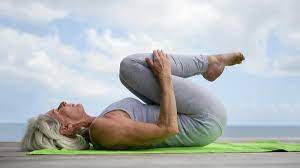
Yoga is a holistic practice combining physical poses (asana) with mindfulness, breathing techniques, and meditation. The combination of these practices promotes functional mobility, self-discovery and helps rebalance the nervous system. For millennia, yoga practitioners have attested to the benefits of yoga. While these anecdotal reports are compelling, modern science is now able to validate these claims. The research on yoga is preliminary, however, initial studies have found a yoga practice to positively correlate with both physical and mental wellness. It’s uncontroversial that yoga can improve strength, flexibility, and endurance, but studies have also found that regular practice may help:
- Lower the risk of cardiovascular disease
- Recovery from strokes and surgery
- Prevent falls
- Manage arthritis, pain, and inflammation
- Manage diabetes
- Manage digestive issues like IBS
- Improve sleep quality
- Facilitate the grieving process
- Manage depression and anxiety
When we consider these benefits, on the whole, it’s not surprising that several studies concluded practicing yoga measurably improves seniors’ self-reported sense of well-being. While some of the benefits on this list can be derived from other fitness programs, yoga outperforms other exercises on several key metrics. For example, one study found that elderly adults assigned a yoga practice experienced greater improvements in regulating feelings of anger and anxiety, as well as increases to their sense of well-being and self-efficacy, than those in an exercise control group. This is not to say that going for a run or lifting weights is not beneficial, but it appears yoga is unique in its scope and its ability to address a broad spectrum of wellness indicators.



Thank you very much for sharing, I learned a lot from your article. Very cool. Thanks.